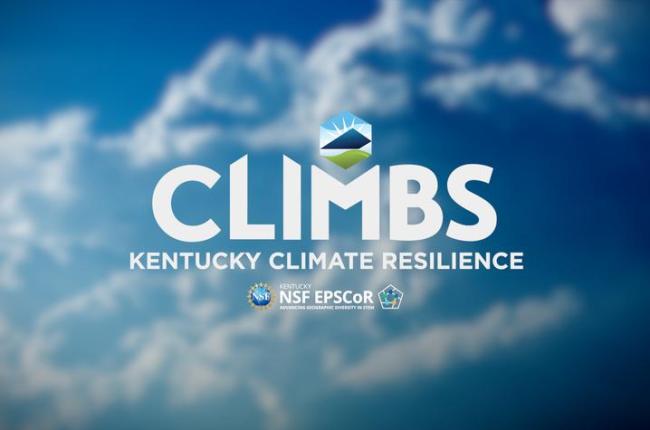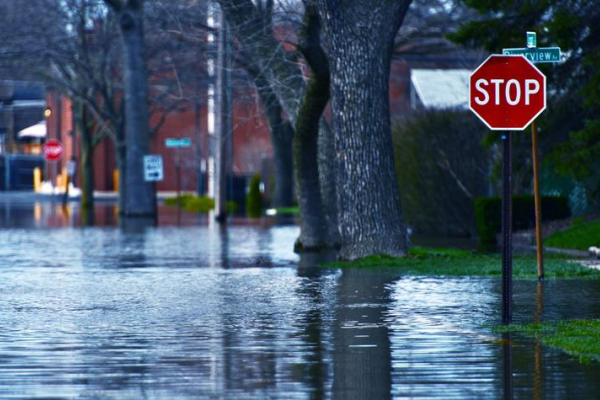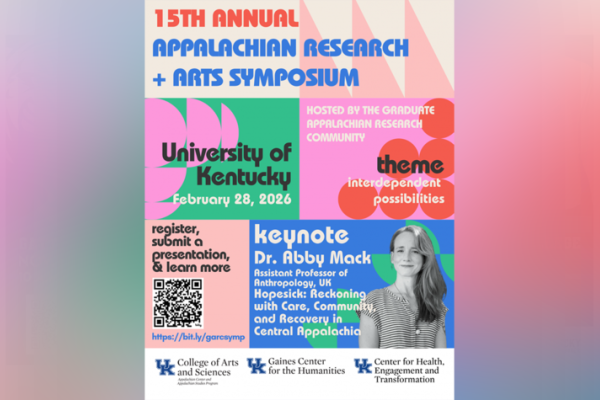KGS director leads effort to strengthen Kentucky’s extreme weather resilience
When Michael McGlue, Ph.D., took the helm of the Kentucky Geological Survey (KGS) last fall, he took on a key role at a pivotal time as Kentucky faces increasingly extreme weather.
“Kentucky really is a paradise for geologists,” said McGlue, Alumni Endowed Professor and KGS director. “There are so many different aspects to the natural environment here that are fascinating. When I took over as director of the 14th Kentucky Geological Survey, a big motivation for me was to push hard on helping the state become more resilient to natural hazards.”
McGlue is leading a bold initiative focused on hazard preparedness, geoscience education and workforce development. At the heart of that agenda is the CLIMBS project, a major initiative funded by the National Science Foundation, uniting multiple Kentucky universities to prepare communities for the intensifying impacts of evolving weather patterns.
“Ultimately, we want our people to be healthy and safe. We want our infrastructure to be strong,” McGlue said. “And so, we need to prepare for extreme weather events that might trigger floods and landslides.”
The CLIMBS project goes beyond modeling environmental threats — it’s preparing students and communities. With funding for educational outreach and student training, McGlue sees the initiative as an important step toward strengthening Kentucky’s geoscience workforce.
“We really need to develop a workforce that has skills in the geosciences,” McGlue said. “That’s something that’s, at the moment, lacking in the state. We really need it to build our workforce moving into the future, to be climate and hazard ready.”
McGlue, a field scientist by background, brings that same philosophy into the classroom and lab.
“I think it’s really important for students to get out in nature and make observations,” McGlue said. “I want them to understand the world that surrounds them, ask good questions and critically think through how to solve problems.”
Students can also engage in projects under the mentorship of seasoned geologists through programs like the Paul Edwin Potter Internship at KGS. The program provides Kentucky university students interested in geoscience and adjacent research areas like geography, public health, data science and engineering the opportunity to get real-world experience and engage in a hands-on research project.
KGS also improves public access to geological data through its user-friendly website with interactive maps and resources for researchers, educators, industry and the general public. KGS researchers are actively engaged in projects that touch energy, water resources, natural hazards, karst, geohealth and more. KGS data are accessible and freely available to all stakeholders.
For more information, watch the video above and visit the KGS website.
This material is based upon work supported by the U.S. National Science Foundation under Cooperative Agreement No. 2344533 and 1849213. Any opinions, findings, and conclusions or recommendations expressed in this material are those of the author(s) and do not necessarily reflect the views of the U.S. National Science Foundation.


